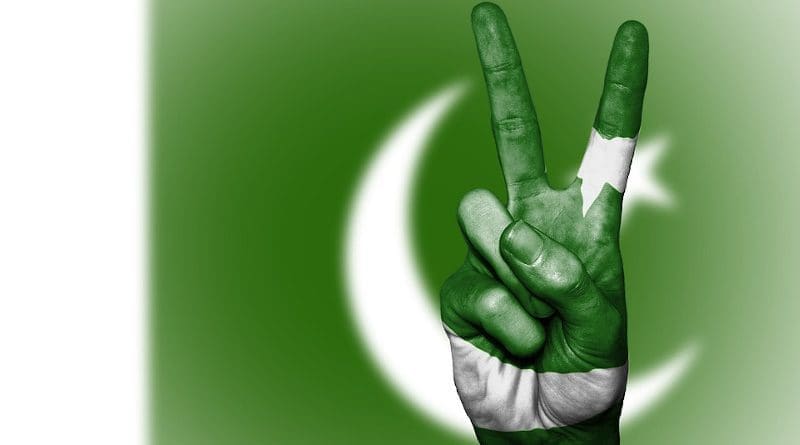Pakistan: Justifying Extrajudicial Killings
By UCA News
By Kamran Chaudhry
(UCA News) — The year was 1993. Pakistan’s policy of killing militants extrajudicially was finalized in a meeting chaired by former interior minister Naseerullah Babar, a retired lieutenant general in Karachi.
Not a single policeman was even injured during 745 encounters, according to the police’s own records. That was until 2018 when Naqeebullah Mehsud, 27, an aspiring model from the tribal district of South Waziristan, was murdered.
Former superintendent of police Rao Anwar had stuck to the claim that the victim was a Tehreek-i-Taliban Pakistan (TTP) militant. Both the TTP spokesperson and Mehsud’s family disputed the claim.
According to the report of an inquiry committee submitted to the Supreme Court, some 444 accused terrorists were killed on the pretext of police encounters under the tenure of Anwar, known as an encounter specialist.
Since 2018, lawyer and activist Jibran Nasir has been trying for the conviction of Anwar, who was simply suspended from his post. Awaiting justice, Mehsud’s father died of cancer in 2019.
“Anwar’s trial is still unfinished. We relied on the testimony of police officers who became afraid. They deviated from their statements and were awarded with better posts. ISI [Inter-Services Intelligence], military intelligence and the Pakistan People’s Party, which governs Sindh province, made sure he didn’t spend a single night in prison or even handcuffed,” Nasir told UCA News.
Pakistan’s penal code carries the death penalty for at least 33 crimes ranging from murder, gang rape and kidnapping to blasphemy, adultery, treason and various narcotics charges.
According to human rights groups, the politicized police force still functions under the umbrella of the military’s powerful intelligence service.
In January 2019, the Punjab Counter Terrorism Department (CTD) opened fire on a car carrying a family, killing a couple, their teenage daughter and their neighbor in Sahiwal. CTD personnel claimed they had killed a local commander of Islamic State and three others in the intelligence-based operation.
A joint investigation team blamed top counterterrorism police officials in its preliminary report for the killing of the “innocent family.”
Six CTD officials suspected in the encounter were exonerated by the Anti-Terrorism Court for want of evidence after holding hearings for nine months.
The Human Rights Commission of Pakistan (HRCP) recorded 293 police encounters in 2020.
Controversial Islamic blood money laws add another loophole for the wealthy and the powerful to walk away scot-free from homicide convictions by intimidating their victim’s heirs, making them a financial offer that they cannot refuse, or both.
Declaration of the value of blood money is part of the Qisas (retribution) and Diyat (blood money) Ordinance 1990, which was introduced by Gen. Zia-ul Haq as part of the Islamization process in Pakistan. In awarding Diyat, courts are to take into account the financial position of the convict and the victim’s heirs, but the amount fixed must not be less than the value of 30,630 grams of silver.
Human rights activists say the laws have been most abused in the case of honor killings, where a male murders a female relative then is pardoned by family members.
“Blood money is part of Sharia law and needs to be revised. The poor are pressured to accept Diyat. It wasn’t supposed to be a loophole for the rich. Unfortunately, its application in an unjust society is a contradiction of the law of God,” said Nasir.
“Our judicial system is dilapidated. Still there is hope of getting justice, even if the culprits belong to rich families, with follow-up of cases and the combined pressure of media and civil society.”
According to the HRCP, 430 cases of honor killings involving 148 males and 363 female victims were recorded in 2020. Most of the killings, 197, were recorded in Sindh province.
The most high-profile case recently involved social media star Qandeel Baloch, who was drugged and strangled by brother Muhammad Waseem at their home in Multan in July 2016, days after she posted selfies with Islamic cleric Mufti Abdul Qavi.
The murder sparked national outrage but Lahore High Court acquitted him on Feb. 14 after serving less than six years in prison.
In 2019, Qandeel’s parents pardoned their son for her murder, arguing that the Anti-Honor Killing Laws (Criminal Laws Amendment) Act 2015 which barred the pardoning of killers had been passed several months after the killing.
Biased prosecution in cases of anti-Christian attacks is another challenge.
In 2017, an Anti-Terrorism Court absolved 106 suspects involved in the torching of 150 houses and three churches in Joseph Colony, a predominantly Christian neighborhood in Lahore, following a blasphemy allegation against a local Christian. The suspects were freed due to a lack of evidence.
Similarly, not a single person was convicted for the 2009 Gojra riots where 10 Christians were killed, seven of them burned alive, while four churches were destroyed following a blasphemy allegation.
Churches in Gojra still observe a memorial Mass for the anniversary of the mob attack every August.
“Even the clerics working for interfaith harmony, following the riots, were threatened. Two Christian families have left the city. At least six families have one or two members awaiting asylum in Thailand,” Father John Murad, parish priest of Sacred Heart Church in Gojra, told UCA News.
“The sense of insecurity still prevails. Religious intolerance these days is like a ticking time bomb. Besides improving the justice system, the government should focus on improving the syllabus of madrasas [Islamic schools] and promote awareness among people.”

